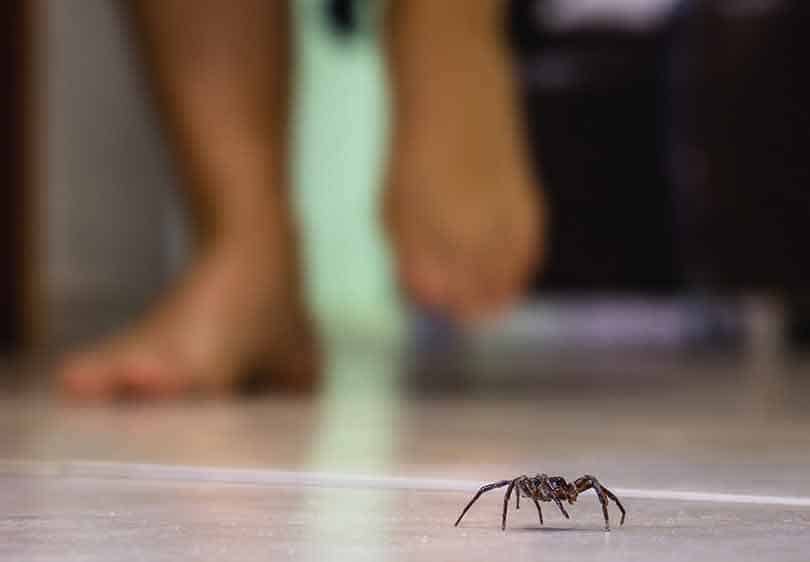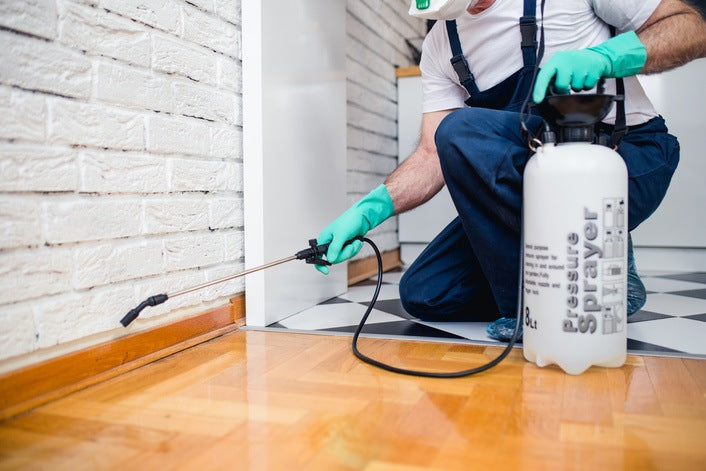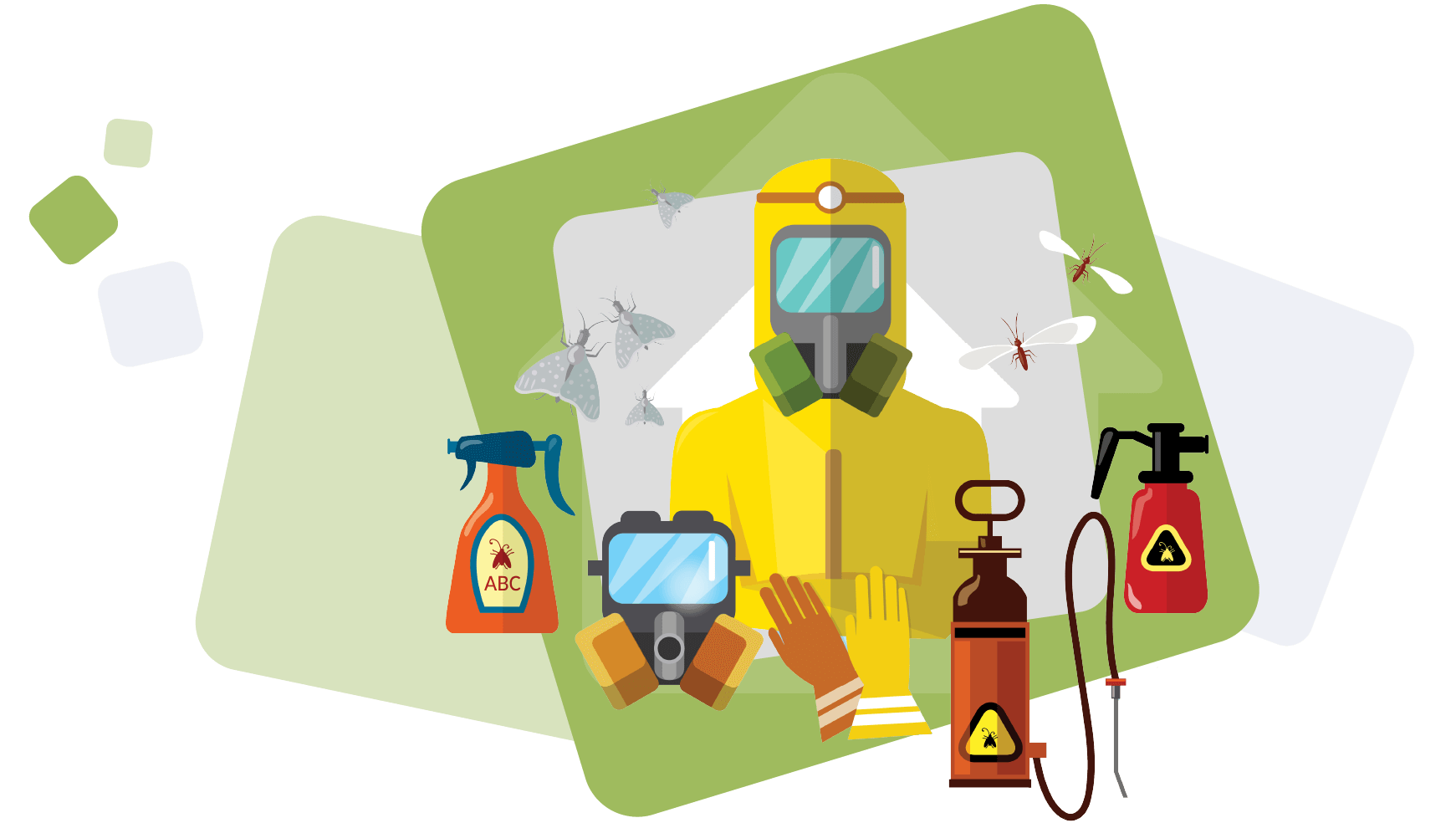Discovering the Different Kinds Of Insect Control Techniques and Their Applications
Bug control is a crucial aspect of maintaining a secure and healthy and balanced setting, whether it remain in household, business, or farming setups. Numerous methods have been developed and refined over the years to efficiently mitigate and manage pest problems. From chemical approaches that target specific pests to organic strategies that harness natural predators, the world of bug control is huge and varied. Recognizing the various kinds of parasite control techniques and their applications is vital for implementing the most ideal and sustainable options. Let's explore the ins and outs of these techniques and just how they can be successfully used to address pest-related obstacles.
Chemical Pest Control Methods
Chemical bug control methods are commonly utilized in agriculture and pest monitoring to effectively eradicate or regulate pest invasions. These techniques include the use of chemical substances, such as chemicals, herbicides, and pesticides, to decrease or eliminate parasite populaces that position a threat to plants, livestock, or human health.
While chemical pest control strategies can be very efficient in handling pest populaces, they likewise raise concerns concerning prospective environmental and wellness dangers. Improper usage or overuse of chemical pesticides can cause contamination of dirt, air, and water, hurting non-target organisms and creating long-lasting ecological damage. In addition, repeated direct exposure to chemical deposits may present health threats to farmworkers, consumers, and wild animals. It is vital to adhere to security standards, utilize incorporated pest management techniques, and consider alternative methods to lessen the negative effects of chemical parasite control techniques.
Organic Parasite Control Methods
 Organic pest control approaches use living organisms to take care of and minimize bug populations in a environmentally pleasant and sustainable manner. One usual technique is the release of ladybugs to deal with aphids in gardens, as ladybugs are natural killers of these damaging parasites.
Organic pest control approaches use living organisms to take care of and minimize bug populations in a environmentally pleasant and sustainable manner. One usual technique is the release of ladybugs to deal with aphids in gardens, as ladybugs are natural killers of these damaging parasites.
Organic pest control techniques use numerous advantages over chemical approaches. They are commonly safer for the environment, as they do not leave dangerous deposits or add to pollution. Additionally, these techniques are commonly extra targeted, affecting only the pest species without hurting valuable insects or other organisms. In addition, organic control can be a lasting solution, as the presented microorganisms can develop lasting populaces and give recurring parasite monitoring. Generally, organic bug control techniques provide a effective and natural alternative to traditional chemical treatments, promoting a well balanced ecological community and much healthier settings.
Physical Bug Control Approaches
Using physical techniques to manage insects involves making use of non-chemical or mechanical ways to handle and alleviate parasite invasions successfully. These approaches count on physical barriers, catches, and various other methods to prevent and get rid of insects without the usage of dangerous chemicals. One common physical bug control method is the setup of fences, internet, or displays to obstruct insects from getting in specific areas. This approach is particularly efficient in staying out insects and little pets from gardens or structures.
One more physical strategy is the use of catches, such as breeze traps for rodents or scent catches for bugs. These catches purpose to capture parasites without positioning any kind of risk to humans or the atmosphere. In addition, physical control methods can include methods like handpicking bugs off plants, making use of vacuum cleaner gadgets to eliminate bugs, or employing heat treatments to remove bed pests and various other parasites in ravaged locations.
Integrated Pest Management Strategies
Executing a index holistic technique to pest monitoring, Integrated Bug Management (IPM) methods aim to combine numerous efficient methods to control and prevent insect infestations while minimizing ecological effect and making sure sustainable pest control techniques. IPM includes the integration of numerous control techniques such as biological control, social methods, mechanical control, and the cautious use chemicals.

Furthermore, IPM stresses the significance of surveillance and examining pest populations to figure out the most proper control strategies. By carrying out IPM approaches, insect control initiatives come to be extra targeted and efficient, decreasing the dangers linked with too much chemical usage and promoting long-term insect administration options.
All-natural and Organic Parasite Control Options

One prominent organic bug control method is neem oil, stemmed from the seeds of the neem tree, which acts as a repellent and interferes with the growth and advancement of pests. Diatomaceous earth, a home natural silica-based powder, is an additional effective organic parasite control option that works by drying out pests upon get in touch with. By including organic and all-natural parasite control options right into pest administration approaches, individuals can successfully control insects while minimizing harm to the setting and advertising sustainable methods.
Conclusion
To conclude, different bug control strategies such as chemical, biological, physical, incorporated pest management, and all-natural options are offered for effectively taking care of parasite infestations. Each method has its own advantages and applications depending upon the kind of bug and the atmosphere. By understanding the various types of pest control methods and their applications, people can make educated decisions on the most suitable method to control insects and safeguard their building.
Chemical parasite control strategies are commonly utilized in agriculture and pest management to effectively get content rid of or regulate pest invasions - Orem Pest Control. Natural pest control methods entail utilizing biological control representatives, such as killers or bloodsuckers, to take care of bug populations. By incorporating all-natural and natural bug control choices into parasite administration methods, individuals can efficiently control parasites while decreasing damage to the environment and promoting lasting techniques
In verdict, different pest control techniques such as chemical, organic, physical, integrated pest monitoring, and all-natural options are available for successfully handling pest problems. By recognizing the various types of pest control strategies and their applications, individuals can make informed choices on the most appropriate technique to control pests and shield their building.